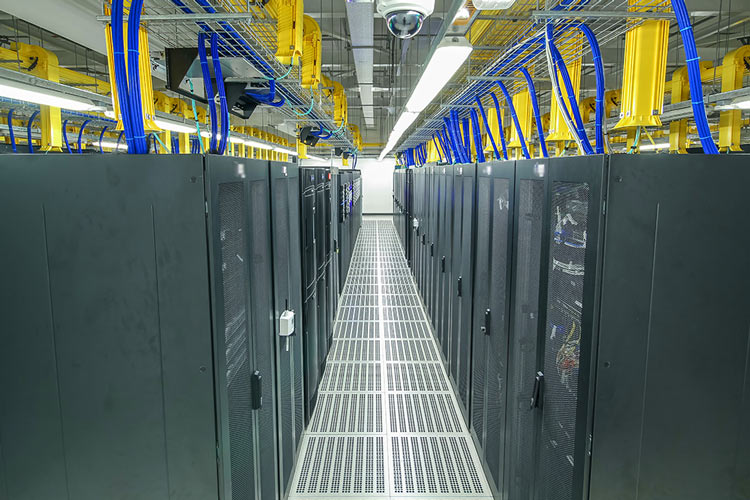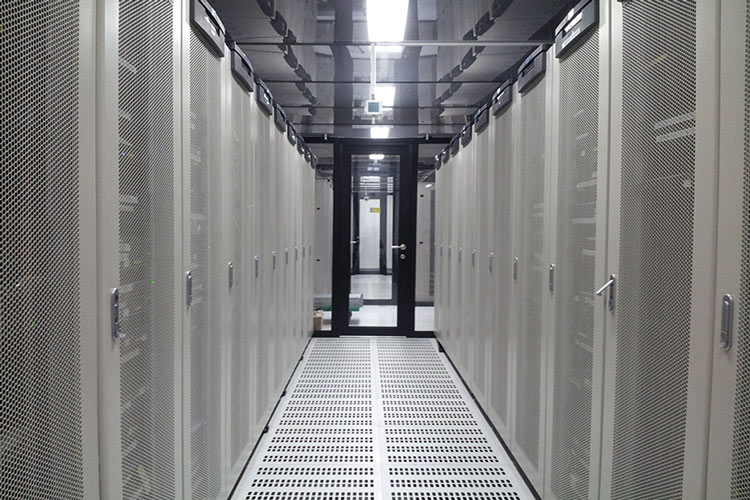Businesses generate and process massive amounts of data today, which wouldn’t be possible without reliable, scalable, and secure infrastructure. The problems with managing on-premises data centers are already too familiar to businesses today: it comes with significant challenges like high capital expenditures, ongoing maintenance, and the need for specialized IT staff. As a result, organizations are shifting more and more towards outsourced infrastructure solutions like data center as a service (DCaaS) and Infrastructure as a Service (IaaS) to meet their growing demands.
For many companies experiencing sudden traffic spikes, relying solely on traditional in-house servers can mean having to deal with downtime during sudden surges like in the holiday season, for instance. Or, similarly, a healthcare provider handling sensitive patient data is obligated to ensure compliance with regulatory requirements and data security – which can be overwhelmingly complex to manage internally. Opting for a data center as a service solution provides businesses with dedicated, high-performance infrastructure – but without the financial and operational burden of owning a data center. IaaS provides on-demand compute power, which is ideal for businesses needing flexibility, easy scalability, and cost-efficiency.
This article will compare data center as a service (DCaaS) and infrastructure as a service (IaaS), and explore their benefits, costs, and ideal use cases to help you decide which solution best aligns with your business needs. Let’s jump right into it.
Defining Data Center as a Service (DCaaS)
Data Center as a Service is a solution where businesses lease data center resources instead of building and managing their own facilities. DCaaS provides access to physical infrastructure, like servers, networking equipment, power, and cooling, relieving organizations of the burden of investing in hardware. Data center as a service is different from traditional colocation services because it offers a fully managed solution where providers handle maintenance, security, and uptime management as well.
This model is ideal for companies that need dedicated infrastructure but lack the resources or expertise to operate a data center of their own. DCaaS ensures high availability, robust security, and predictable costs, making it a scalable alternative to owning data center assets. Essentially, it allows organizations to benefit from enterprise-level data center facilities – but without the cost and maintenance burden of owning the equipment.

Defining Infrastructure as a Service (IaaS)
IaaS is a cloud computing model that provides virtualized computing resources over the internet. Instead of managing physical hardware, businesses can rent computing power, storage, and networking on demand from providers like AWS, Microsoft Azure, or Google Cloud.
IaaS allows you to scale IT resources dynamically, paying only for what they use. It eliminates the need for upfront infrastructure investments and ongoing maintenance, as the service provider handles everything from updates to security and system performance. This flexibility makes IaaS a preferred choice for companies seeking agility, cost efficiency, and rapid deployment of applications.
Key Differences Between the Two
Both data center as a service and infrastructure as a service provide outsourced infrastructure solutions, however they differ in key aspects. Fundamentally, these are two different models, where DCaaS offers access to dedicated physical infrastructure, whereas IaaS provides virtualized computing resources hosted in the cloud. This distinction affects control, performance, and overall management responsibilities.
One of the main differences lies in customization and control. With data center as a service, you have full authority over hardware, networking configurations, and security measures. This allows you to tailor the IT environment to your organization’s needs. On the other hand, IaaS abstracts infrastructure management, offering pre-configured resources that businesses can deploy quickly – however, with limited hardware customization options.
Performance is another crucial factor. Since data center as a service provides dedicated infrastructure, organizations can benefit from consistent and reliable performance and lower latency. This is particularly preferred for high-demand applications. IaaS, being a shared cloud environment, may experience variable performance depending on network conditions and how resources are allocated among multiple users.
Management responsibilities also differ between the two models. DCaaS providers handle the physical infrastructure (power, cooling, and security), but leave software and application management to the client. IaaS providers take a more hands-on approach. In this case, the provider manages infrastructure virtualization, security, and often system maintenance, reducing the IT burden for businesses.
Advantages of DCaaS
These are the main benefits of data center as a service.
- Security & Compliance – DCaaS allows businesses to maintain strict security controls, making it ideal for industries with regulatory requirements like finance and healthcare.
- Dedicated resources – Unlike shared cloud environments, data center as a service ensures consistent performance by providing exclusive access to hardware.
- Predictable costs – With fixed leasing agreements, businesses can predict IT expenses better and worry less about fluctuating cloud bills.
- Hybrid IT Integration – Data center as a service allows businesses to integrate on-prem infrastructure with leased data center resources when necessary.
Advantages of IaaS
- Scalability and Flexibility – Businesses can scale computing power, storage, and network capacity instantly, making IaaS ideal for dynamic workloads.
- Lower upfront costs – IaaS follows a pay-as-you-go model, eliminating the need for capital investment in infrastructure
- Managed Maintenance – Service providers handle software updates, security patches, and hardware failures, reducing operational complexity.
- Global Availability – Cloud providers operate data centers worldwide, allowing businesses to deploy applications closer to end users for better performance.

Cost Considerations: Which Option is More Cost-Effective
When evaluating the cost-effectiveness of DCaaS and IaaS, it’s best to think long-term and consider both the upfront expenses and long-term financial commitments involved. Data center as a service follows a capital expenditure or CAPEX model, where companies pay a fixed fee for leasing dedicated infrastructure. This provides cost predictability, making it easier to budget for IT expenses over time. However, it does require a long-term financial commitment, businesses being responsible for their allocated resources.
Infrastructure as a service, on the other hand, works on an operational expenditure (OPEX) model. This means that companies pay only for what they consume. This structure offers flexibility, making it easy to scale up or down as needed without ending up in the frustrating situation of being locked into an ill-fitting contract. So, IaaS is generally a more cost-effective solution for fluctuating workloads, however, sometimes hidden expenses can appear. Data egress fees, API requests, or premium support can add up and create extra costs that should be considered in advance.
As always, the financial decision depends on the company’s needs. If your organization operates with stable workloads that require dedicated and high-performance infrastructure, data center as a service might be more economical in the long run. But for businesses that often experience unpredictable traffic spikes and fluctuations in growth, IaaS can provide flexibility – and no serious upfront costs. Assessing workload stability, scaling needs, and budget constraints will help determine which model offers the best financial option in both the short and the long term.
Choosing the Approach That Best Suits Your Business
- Data Center as a Service is ideal for enterprises needing full control over their infrastructure. It’s the right option for those needing strict security and compliance, as well as predictable IT costs.
- Infrastructure as a service is ideal for startups, small businesses, and companies requiring rapid scalability, flexibility with costs, and minimal infrastructure engagement.
- Some organizations benefit the most from going with the best of both worlds and taking a hybrid approach. This allows them to leverage DCaaS for critical workloads and IaaS for scalable, on-demand resources.
Conclusion
Both data center as a service and infrastructure as a service are great solutions, but which one is the most suitable to fulfill an organization’s needs varies from company to company. Before choosing a provider, take the time to thoroughly assess performance needs, security requirements, scalability goals, as well as budgeting limits. In many cases, the choice is not either this or that but a hybrid approach that delivers the most strategic advantage.
Want to learn more about infrastructure and data center solutions? Contact us at Volico Data Centers to find the solution that fits your business like a glove. Call (305) 735-8098 or drop us a message in chat.









